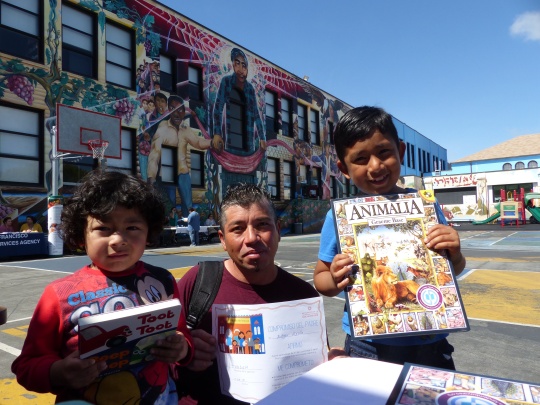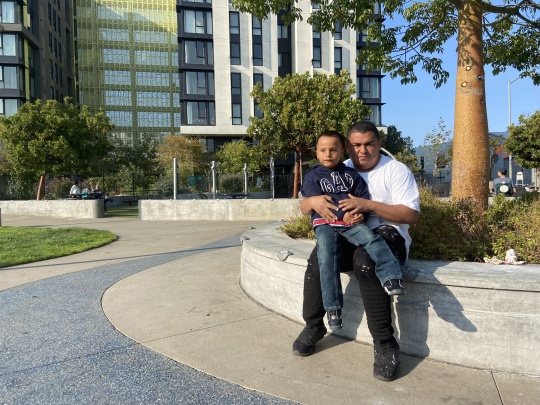San Francisco’s Mission District: A Transformational Prenatal-to-Career Model
A By All Means Senior Fellow's, Success Planning, and Recent EdRedesign Case Study Community
This type of transformational, community-led initiative should not be a boutique one-off, but rather the normal way that we come together as a society to align systems, fight poverty, and reverse legacies of inequity. This will be the goal of the Equitable Recovery Institute. – Richard Raya, MEDA Senior Advisor and former Chief Strategy Officer; EdRedesign By All Means Senior Fellow
The Mission District has served for decades as the vibrant epicenter of the San Francisco Bay Area’s Latino community. The Mission faces the challenges associated with neighborhoods characterized by poverty and gentrification. Under the umbrella of the Mission Economic Development Agency (MEDA), founded in 1973, the Mission has become a national model for place-based prenatal-to-career strategies designed to “build Latino prosperity, community ownership, and civic power." For the people who live there, MEDA has been a lifeline, providing access to stable housing, affordable childcare, afterschool programs, mental health support, financial capability coaching, small business loans, and a host of other services.

EdRedesign documented MEDA’s development and impact in a case study, authored by Lynne Sacks and Michelle Sedaca, that highlights the strategic steps that propelled MEDA’s growth into one of the leading examples of how place-based collaboration can change the life trajectories of local residents while maintaining the culture and heritage of the community.
You can read the full case study, and an overview of the case in Spanish and in English.
Founded in 1973 to build economic security for the Mission’s Latino community, MEDA has grown into a multifaceted organization with a staff of well over 100 people and an annual budget of over $21 million. Today, MEDA’s intersecting activities touch nearly all aspects of the lives of Mission residents. MEDA is the backbone agency for the Mission Promise Neighborhood (MPN), which is the collaborative action initiative of MEDA, the city of San Francisco, the San Francisco Unified School District, and 15 vital community partners serving students and families. Using a nested civic infrastructure approach that includes the neighborhood, city, state, and federal funding streams, MEDA and MPN deploy millions of dollars in the community each year, distributing funds to non-profit partners for services, grants, low-cost loans, relief funds, college scholarships, and more. MEDA maintains its strong community roots and mission while continuing to expand the scope of its services, its geographic reach, and its national profile.
Learn more about how Mission Promise Neighborhood partners with the community, centering systems on the needs of kids and families to improve cradle-to-career outcomes in this video by StriveTogether.
Family Success Coaches are the core of MPN’s two-generation support to families. The coaches, who are all bilingual in Spanish and English, develop relationships with parents and connect them with the supports they need for their children to thrive. Family Success Coaches refer families to services and programs available through both MEDA and partner organizations based on their specific needs. To ensure each child, in addition to each family, has personalized supports and an adult who serves as their Navigator, MEDA/MPN joined EdRedesign’s Institute for Success Planning Community of Practice in the summer of 2023. The MEDA/MPN Success Planning initiative will extend the Family Success Coach model to individual students.
MEDA and MPN By the Numbers
Student Results:
71% of preschool children in MPN’s programs whose parents also participated in MEDA’s programs and services are assessed as kindergarten ready, according to a 2019 study
The graduation rate at MPN’s target high school increased 31.7% since 2012 to 90% during the 2021-2022 academic year
In 2022, MEDA:
Served approximately 8,750 clients in its asset building programs and approximately 1,750 residents in its community real estate programs
Helped 3,000+ clients access nearly $3.5 million in economic relief and another 390+ access $9.4 million in rental relief
Completed nearly 4,000 tax returns, resulting in an estimated $7.9 million returned to local residents
Helped place 200+ people into quality jobs
Assisted 400 small businesses with coaching and business development technical assistance
Achieved a 98% repayment rate on its active loan portfolio
Since its founding in 2014, MEDA’s Community Real Estate Program has:
Preserved/produced over 2,000 affordable residential and commercial units, including new affordable housing apartment complexes
Leased low-cost space in its buildings for early childhood programs, small businesses, arts and cultural organizations, and other nonprofits
10 Takeaways for Place-Based Leaders
MEDA’s success is built on a number of strategic moves that other partnerships can adapt and employ in their own local contexts. While each community has different cultures, assets, needs, histories, and existing initiatives, these strategies address both the mindsets and the actions needed for transformational and sustained cradle-to-career efforts.

Keep the community’s needs and aspirations at the center of the work
Have an audacious vision
Build on what already exists through strategic, relationship-based partnerships
Hire and cultivate committed, proximate leaders
Embed data—both quantitative and qualitative—to understand needs and measure progress
Blend direct services with capacity building and infrastructure development
Personalize supports
Braid multiple funding streams and networks
Advocate to influence structures and policies
When you succeed, bring others with you